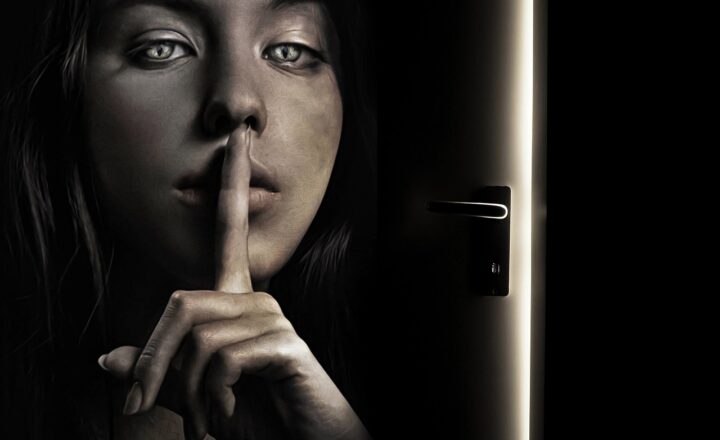The Hidden Meanings Behind Famous Cartoons: What We Missed as Kids
November 18, 2024

Cartoons have long been a cornerstone of childhood entertainment, providing laughter, valuable lessons, and unforgettable memories. Often filled with vibrant colors and whimsical characters, these animated tales appear superficial upon first glance. However, there lies a rich tapestry of hidden meanings and profound life lessons embedded within these stories—lessons that many adults may overlook. Whether you were giggling at Tom and Jerry’s antics or swooning over the romance of Disney characters, many of these beloved cartoons carry messages about society, morality, psychology, and even existentialism that critique the world we live in.
1. The Societal Commentary in ‘The Simpsons’
One of the most iconic animated series in history, ‘The Simpsons’, has captivated audiences for over three decades. While it may seem like a simple family sitcom, the show offers scathing satirical commentary on American culture, politics, and social norms.
From critiques of consumerism and capitalism to parodies of political figures and social issues, the show cleverly mirrors the absurdities of ordinary life. Take, for example, the character of Homer Simpson. He embodies the everyman—a bumbling yet loving husband who often executes poor decisions, reflecting the challenges many face in their own lives. The show challenges viewers to analyze and critique their own societal beliefs and practices, making it much more than just a mindless cartoon.
2. ‘Looney Tunes’: Racism and Stereotypes
The Looney Tunes series is a collection of animated shorts featuring unforgettable characters like Bugs Bunny, Daffy Duck, and Porky Pig. Although they are known for their humor and slapstick comedy, some of these animations have faced significant criticism for their portrayal of racial stereotypes. Characters like Speedy Gonzales and the various African American caricatures often perpetuated negative stereotypes common in their respective eras.
Exploring these elements provides a crucial opportunity to discuss the historical context and societal perceptions of race and identity. Recognizing these stereotypes in cartoons can spark important conversations about cultural sensitivity and representation in media. It’s a reminder that even beloved characters can reflect harmful cultural narratives.
3. The Existential Themes of ‘Adventure Time’
‘Adventure Time’ began as a quirky kids’ show, laden with colorful visuals and whimsical stories of Finn the Human and Jake the Dog. As it developed, it evolved into a deep exploration of existential issues, mental health, love, friendship, and the nature of reality.
The Land of Ooo offers a platform for discussing incredibly complex human emotions—from loss and depression to sacrifice and identity. Characters like Marceline the Vampire Queen confront themes of aging and the passage of time, while the Ice King represents the pain of loneliness and a longing for connection.
Beneath its seemingly playful surface lies a thought-provoking narrative that encourages children and adults alike to face and explore their feelings, ultimately promoting emotional intelligence.
4. Disney’s ‘The Lion King’: The Circle of Life
Disney’s ‘The Lion King’ is perhaps one of the most beloved animated films across generations. While the plot revolves around Simba’s journey to reclaim his throne, a deeper message emerges about the natural order of life and the importance of responsibility.
The concept of the ‘circle of life’ is one that resonates throughout the film, illustrating how life is interconnected. The death of Mufasa symbolizes the inevitable loss that everyone faces, but it also teaches valuable lessons about resilience, healing, and legacy.
The lessons imparted by ‘The Lion King’ extend far beyond the screen, encouraging self-reflection and appreciation for the relationships we forge, the responsibilities we hold, and the importance of respecting the natural world.
5. The Feminist Undertones in ‘Wonder Woman’
While famously a superhero, ‘Wonder Woman’ is indifferent from traditional cartoons, nonetheless, her animated iterations—particularly in series shows—carry strong feminist messages.
Wonder Woman, or Diana Prince, represents empowerment, resilience, and independence. Rather than being portrayed as a quintessential damsel in distress, she emerges as a figure of strength who fights for justice and equality. The narratives challenge stereotypes regarding femininity and explore themes related to gender roles heavily ingrained in pop culture.
Through her character, young viewers learn about courage, equality, and standing up for what is just—a message that resonates beyond childhood into adulthood.
Conclusion: Unpacking Childhood Favorites
The hidden meanings behind our favorite cartoons reveal just how powerful animation can be in shaping our understanding of complex themes and messages. Cartoons are more than entertainment; they are a reflection of society’s values, intricacies, and challenges. As children, we often miss the deeper lessons embedded within the bright and colorful landscapes of our beloved shows. However, as adults, revisiting these animated stories can foster meaningful conversations about identity, values, and the fabric of our society.
By taking the time to unpack these layers, we can appreciate the art form not just for its humor and nostalgia, but also for its potential to instigate social awareness and personal growth.








